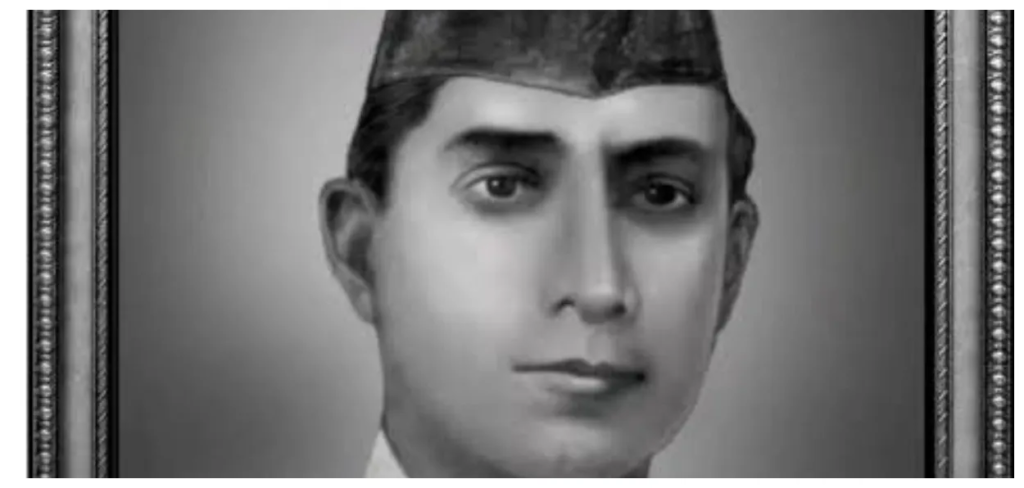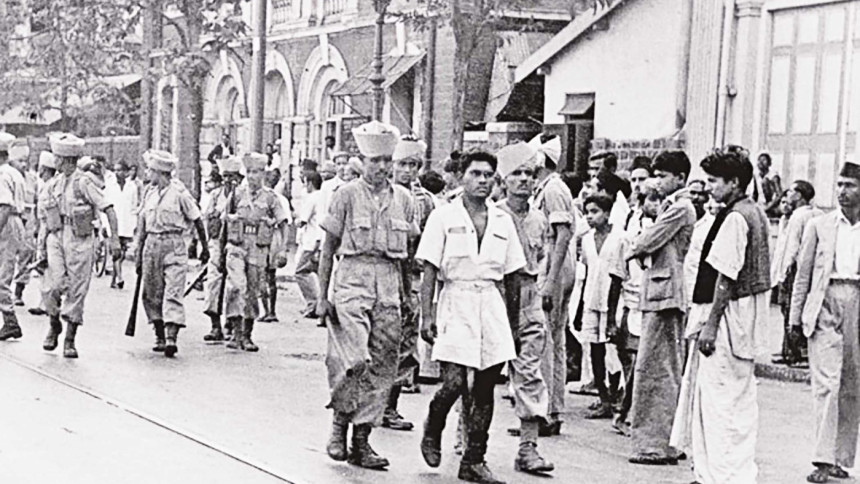BOMBAY (Mumbai) / PRE-INDEPENDENT INDIA :

“He (Mahatma Gandhi) said that while he did not think that Umar Sobhani was a revolutionary, he was frank and open by nature and he (Gandhi) thought that if Umar felt convinced that a revolution was the best way to secure the well-being of India, he would not hesitate to adopt such methods. He thought that in such a case Umar Sobhani would plainly tell him (Gandhi) of his intentions…” This is what Mahatma Gandhi was reported to have told to C.I.D on 8 May 1919 during a police interrogation.
Unsung Heroes of Freedom Struggle
Sobhani was a rich businessman from Mumbai who traded in cotton and joined the freedom struggle early in his life.
Those who take an interest in Mahatma Gandhi consider Young India, an English journal edited by Gandhi, and Navajivan, a Gujarati journal, as his voice. Interestingly, these journals were started by Sobhani who later cajoled Gandhi to take charge as the editor.
Rajmohan Gandhi, one of the grandsons of Mahatma Gandhi, notes, “Three of the Sabarmati ‘covenanters’, Umar Sobhani, Shankerlal Banker and Indulal Yagnik, were between them bringing out two journals, Young India, a weekly in English from Bombay, and Navajivan, a monthly in Gujarati from Ahmedabad, and were also associated with the nationalist daily, the Bombay Chronicle. At the end of April, in one of the Raj’s drastic measures, Horniman, the British editor of the Chronicle, was deported, and the paper’s publication had to be suspended.
“In response, Sobhani, Banker, and Yagnik requested Gandhi to take over the editorship of Young India and Navajivan and with their help bring out Young India twice a week and Navajivan every week. Gandhi agreed, and on 7 May 1919 the first number of Young India, New Series, came out. When, soon, the Chronicle resumed publication, Young India reverted to being a weekly but now published, for Gandhi’s convenience, in Ahmedabad, along with Navajivan, which first appeared as a weekly on 7 September.
“Gandhi now possessed what he had hoped for from the moment of his return to India: vehicles to communicate his message.”
Charkha (spinning wheel) is a synonym for Mahatma Gandhi and his movement and Sobhani played an instrumental role in making it a success. Rajmohan writes, “Indian spinning mills wanted to turn all their yarn into mill-made cloth, not sell it to hand-weavers. Gandhi therefore asked associates to search for spinning wheels that could make yarn. At the Godhra conference in November. 1917, a woman called Gangaben Majmudar, who had ‘already got rid of the curse of untouchability and fearlessly moved among and served the suppressed classes’ (A 442), promised him that she would locate a wheel.
“She found not one but hundreds in Vijapur in the princely state of Baroda, all lying in attics as ‘useless lumber’ (A 443). Women who in the past plied the charkhas told Gangaben that they would spin again if someone supplied slivers of cotton and bought their yarn.
Gandhi said he would meet the conditions, his friend Umar Sobhani supplied slivers from his Bombay mill, and the ashram received more hand-spun yarn than it could cope with.”
Sobhani was one of the original 20 signatories of the pledge to oppose the Rowlatt Act. The pledge was prepared by Gandhi at his Sabarmati Ashram in Ahmedabad. Along with Sardar Vallabhbhai Patel, Sobhani was one of the associates of Gandhi who backed him against the old guards in Congress on the question of the non-cooperation movement in 1918.
K. R. Malkani, a former R.S.S stalwart and BJP leader, writes, “Gandhiji’s right-hand man in Bombay in the 1921 movement was Umar Sobhani. The first bonfire of one and a half lakh pieces of choicest silk was ignited by Gandhi in Umar’s mill compound in Parel.
“When Gandhiji decided to collect Rs. 1 crore for Tilak Swaraj Fund, Umar offered to contribute the entire amount, but Gandhiji wanted it collected from a large number of people. But even so, Umar contributed Rs. 3 lacs.
“Umar was a big cotton merchant. When the British came to know of his role in the Freedom Movement, they ran special trainloads of cotton to Bombay by Viceregal order. As a result, cotton prices collapsed in Bombay and Umar suffered a loss of Rs. 3.64 crores. Daan-Vir Sobhani ended his life.
“Earlier the British tried to divide the family. At their instance, Umar’s father, Haji Yusuf Sobhani contested the office of Sheriff of Bombay. Umar worked. against his father and had him defeated. Later the British tried to tempt Yusuf Sobhani with a knighthood, but Umar told his father that he could accept the title only “over my dead body.” Today probably not even people living on Sobhani Road, Cuffe Parade, Bombay, know who the great Sobhani was!”
Sobhani used to lead the marches in Mumbai, arrange the meetings of Gandhi, and raise funds for the political agitations against the English. Gandhi, according to the police reports, used to call him one of the props of the satyagraha in Mumbai.
source: http://www.awazthevoice.in / Awaz, The Voice / Home> Story / by Saquib Salim / July 31st, 2024









